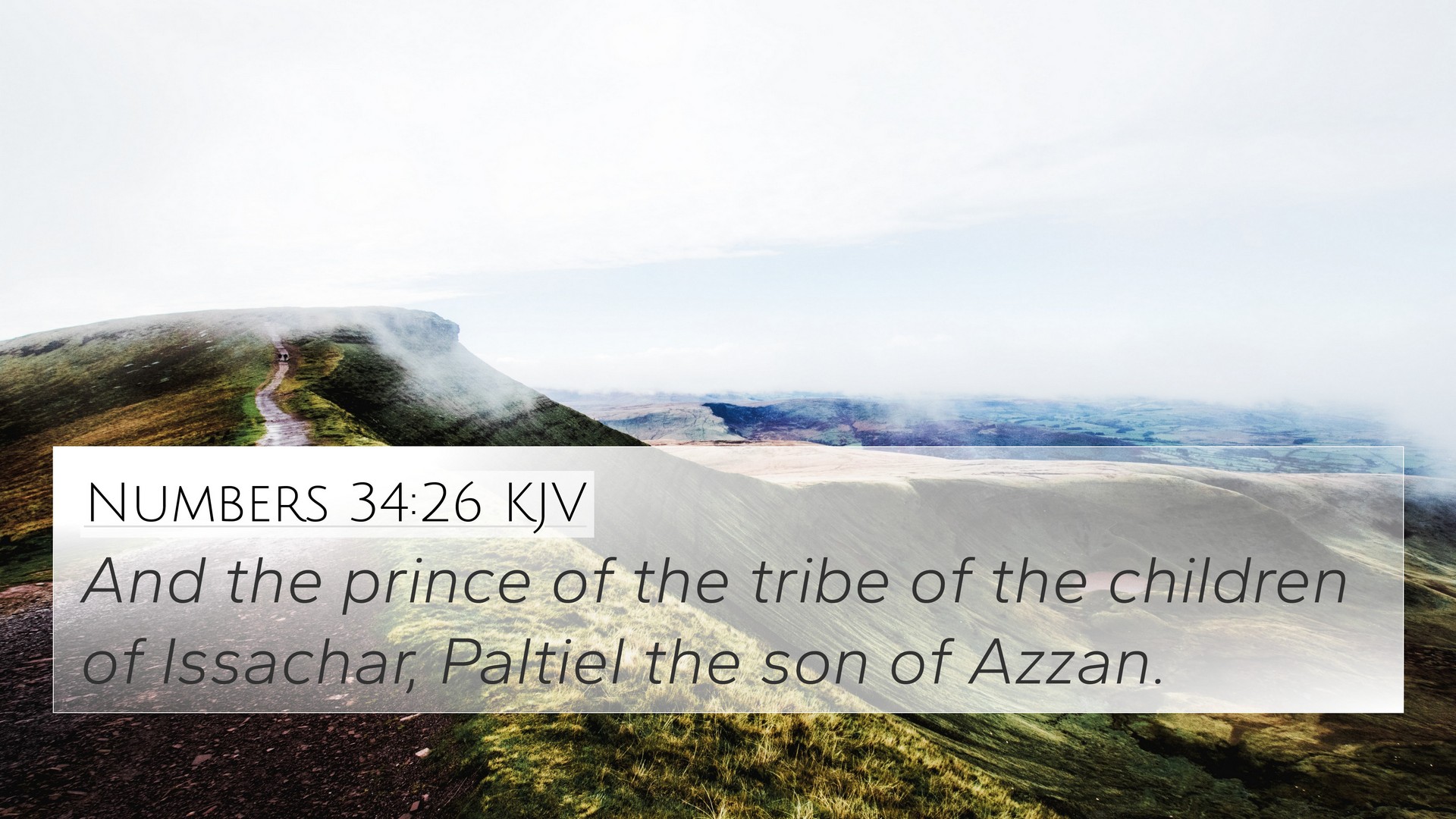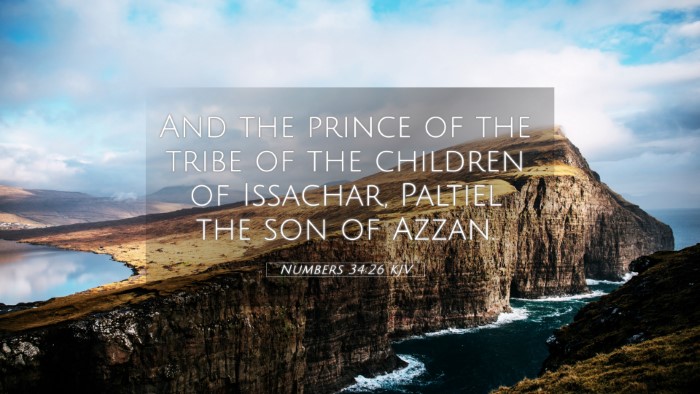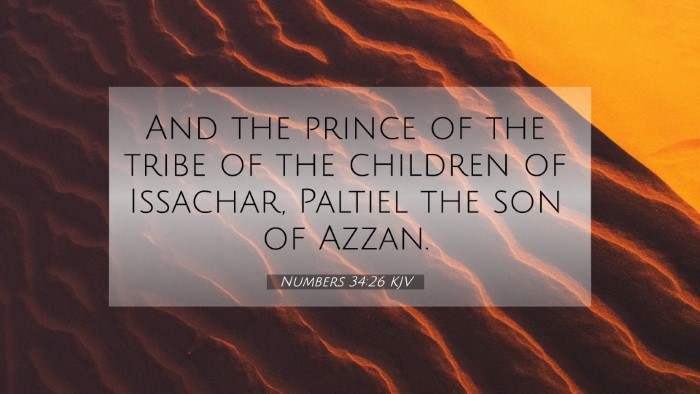The verse Numbers 34:26 reads: "And the prince of the tribe of the children of Naphtali, Ahihud the son of Shelomi." This passage is part of the broader narrative concerning the boundaries of the promised land and the leaders of each tribe who were appointed to oversee the division of the land among the Israelites.
Contextual Overview
The Book of Numbers, particularly chapter 34, delineates the borders of the land that the Israelites would inherit, conveying God’s promises of land to His people. Each tribe's leader is named, illustrating God's order and the importance of leadership in the community.
Interpretations from Public Domain Commentaries
Matthew Henry's Commentary: Henry emphasizes the significance of organization within Israelite society. Each tribe is granted a leader to facilitate the division of the land, demonstrating God's attention to detail in fulfilling His promises. This also symbolizes unity and the specific roles assigned to each clan.
Albert Barnes' Notes: Barnes points out that the mention of the leaders serves as a reminder that God has chosen specific individuals to represent their tribes, highlighting the divine appointment of leaders. He notes that Ahihud, as the prince of Naphtali, illustrates God's sovereign choice in leadership.
Adam Clarke's Commentary: Clarke underscores the historical context, noting that Naphtali, one of Jacob's sons, is accurately represented through Ahihud, and emphasizes the continuity of God's covenant with the tribes of Israel. He interprets this passage as a demonstration of God's plan for the inheritance of the land, spotlighting the tribe's role in God's overarching narrative.
Cross-References and Related Verses
This verse has several biblical connections that enhance its meaning:
- Genesis 49:21 - Jacob's blessing of his son Naphtali, indicating the tribe's identity.
- Joshua 19:32-39 - The actual allotment of land for the tribe of Naphtali, which follows God's command.
- Numbers 1:15 - Details regarding tribal leadership and census, linking back to the organization mentioned in Numbers 34.
- Deuteronomy 33:23 - Moses' blessing on the tribe of Naphtali, reinforcing their identity and importance.
- 1 Chronicles 12:34 - The warriors of Naphtali, emphasizing the strength and capability of this tribe.
- Hebrews 7:14 - Acknowledgement of Jesus' lineage through the tribes of Israel, linking the Old Testament to the New Testament.
- Lamentations 3:22-23 - Reflects on God's faithfulness and mercy, a theme that resonates with the covenant with Israel.
- Isaiah 9:1-2 - The prophecy concerning the land of Naphtali is fulfilled in the coming of Christ to this region.
- Matthew 4:13-16 - Jesus' ministry in Naphtali, fulfilling the prophecy of Isaiah.
- Revelation 7:6 - The significance of the tribes in eschatology and God's perfect plan for His people.
Thematic Connections and Analysis
This verse is not only about a prince's identification but also contributes to broader themes within the Bible:
- Leadership and Structure: Each tribe having a designated prince underscores the importance of leadership and governance in Israel, a theme prevalent throughout the Bible.
- The Promised Land: The division of land signifies God's faithfulness to His covenant promises to Israel, which are echoed throughout scripture.
- Covenant Identity: Ahihud's identification as the prince links to the historical and spiritual identity of the tribe of Naphtali, which carries symbolic weight throughout biblical narratives.
- Divine Sovereignty: The selection of each tribe's leader illustrates God's control over history and His people, a recurring theme in both the Old and New Testaments.
- Fulfillment of Prophecy: The connections to other scriptures regarding the tribe of Naphtali and its eventual role in Jesus' ministry highlight the interconnectedness of biblical prophecy and fulfillment.
Conclusion
Numbers 34:26 offers insights not only into the leadership of Naphtali but also into God's larger narrative through Israel's history. The use of cross-references links this verse with significant themes of organization, covenant identity, and divine sovereignty. For those studying the Bible, understanding this verse in the context of its cross-references provides deeper insight into the connections between Bible verses, enhances the study of scripture, and enriches the overall biblical narrative.


